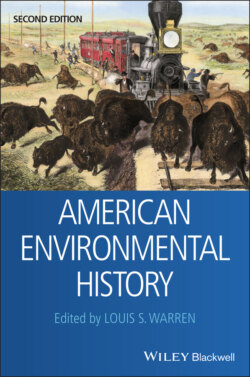Читать книгу American Environmental History - Группа авторов - Страница 36
Treatment of Living Organisms
ОглавлениеKoyukon people follow some general rules in their behavior toward living animals. They avoid pointing at them, for example, because it shows disrespect, “like pointing or staring at a stranger.” They also speak carefully about animals, especially avoiding boastful talk about hunting or trapping exploits.
A man who said he would trap many beavers was suddenly unable to catch any; and someone who bragged about bear hunting was later attacked and seriously hurt. In fact, bears are so powerful that every word spoken about them is carefully chosen. Trapped animals are also treated respectfully, and powerful ones like the wolf or wolverine may be addressed in special ways before they are killed. One man said that he always asks trapped animals for luck: “My animal, I hope that more of you will come my way.”
Keeping wild animals as pets is also prohibited, except for species whose personality traits are valued in humans. A child who keeps a red fox will become mischievous, but if a boy raises a hawk owl he will acquire its hunting skill and cleanliness. People seldom keep pets, because they are likely to suffer, offending their spirits and causing illness or bad luck for those involved in their captivity. A woman told me of losing her small child about a year after the death of a baby hawk owl her family had kept. The tragic connection was clear.
Taking individual animals away to zoos, even catching and releasing them alive as part of studies, is a spiritual affront that can cause a species to shun the area. For this reason Koyukon people are opposed to wildlife research in their country if it involves live capture of animals.
We have respect for the animals. We don’t keep them in cages or torture them, because we know the background of animals from the Distant Time. We know that the animal has a spirit – it used to be human – and we know all the things it did. It’s not just an animal; it’s lots more than that.
Following from this, Koyukon people believe that animals must be treated humanely. The spirits are not offended because humans live by hunting, but people must try to kill without causing suffering and to avoid losing wounded animals. A starving moose, mired in deep snow near Huslia, was fed daily until it regained strength and could walk away. Once a man found a black bear with cubs, driven from their den by groundwater, hopelessly starving in the deep snow. He ended their suffering, then dismembered and covered their unusable carcasses, lest he offend their spirits by killing without at least symbolic utilization. “We’ll come back for this later,” he told his companion, a placating remark that he knew he would not abide by.
